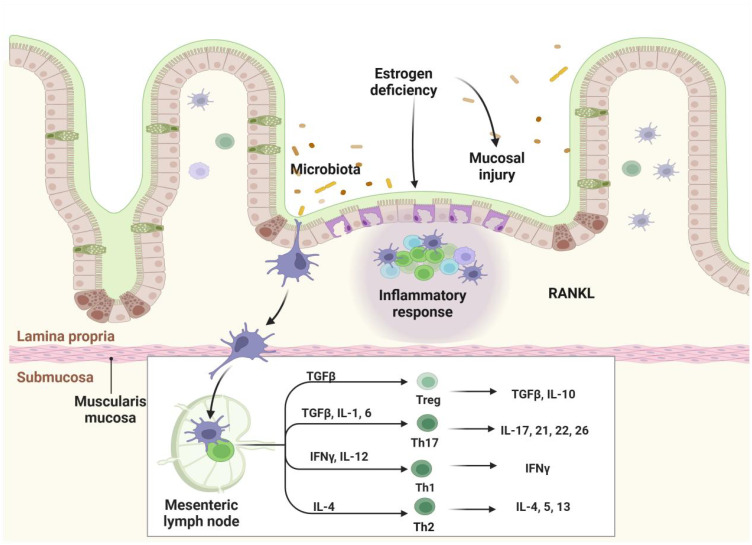Figure 2.
Gut Homeostasis and Immune Regulation. Gut homeostasis plays a pivotal role in maintaining immune equilibrium. Disruption of the gut microbiota and damage to the intestinal barrier can lead to immune dysregulation, characterized by the abnormal activation of innate immune cells, including dendritic cells and macrophages. This activation induces the production of elevated levels of pro-inflammatory cytokines, such as IL-12, IL-23, and type I interferons, while anti-inflammatory cytokines, including TGF-β and IL-10, are suppressed. Activated antigen-presenting cells, like dendritic cells and macrophages, present microbial antigens to CD4+ T helper cells, driving their differentiation into various pro-inflammatory T cell subsets, including Th1, Th2, and Th17.

